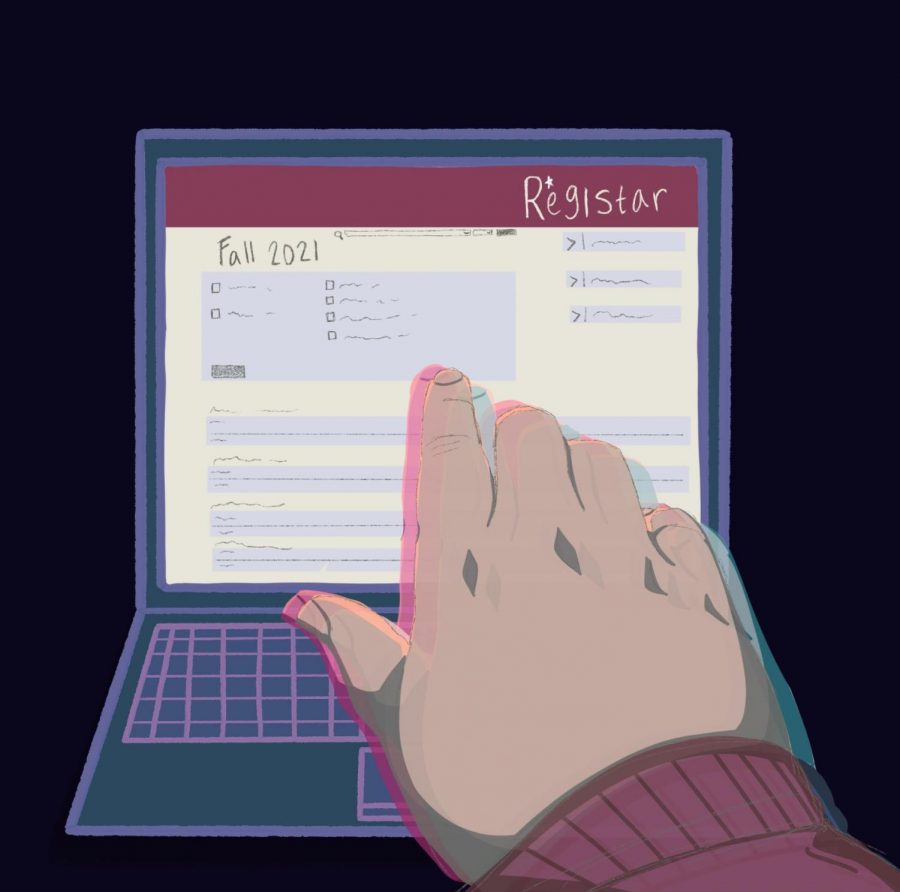Professors can alleviate course registration stress
April 14, 2021
While college itself is innately stressful, course registration is a period of time when most students, regardless of major, endure the same anxiety ridden situation.
Whether it be having to study for a test at the same time you’re supposed to register for classes or having to give up precious hours of sleep for an early slot, stress during registration can lead students to develop dysfunctional behaviors or perform below satisfaction.
To alleviate the pressures placed on students as they focus on signing up for classes, professors should introduce new ways to mitigate stress on students during the course registration period.
Mental health has been a large topic of discussion in recent years and should not be taken lightly by professors.
“I do want to make sure that we’re prioritizing our lives, so whether (a student) gets something turned in on a Friday or a Sunday is really not as important as making sure they get a good night’s sleep or that they’re able to not feel overwhelmed with things,” said Jennifer Moon, associate professor of instruction and assistant dean for non-tenure track faculty in the College of Natural Sciences.
This year’s virtual environment has allowed for some small fixes to the situation.
“Now that it’s mostly virtual, it’s a little easier for (students) to just turn off the camera and do what they need to do, and (professors) allowing that grace seems completely respectful and reasonable,” Moon said.
However, the principle methods behind how professors should go about decreasing stress in students’ lives has still not been fully discussed. Additionally, the responsibility should not fall entirely on the student to try and gain accommodations for a stressor that is evident for nearly every undergraduate on campus. Even as students get older, the worries around registration still persist.
“Even though I’m going to be an incoming sophomore, somehow my registration is still super late, so I feel like all the good professors and all the good classes will be filled up,” computer science freshman Tejasvini Tummuru said. “So, I might never get the opportunity to take the classes I want to complete my majors and minors.”
While it is important to note that changing the way instruction is given would be difficult for professors to accomplish under a short timeline, understanding the changes that can be made would be effective in making a difference for the next registration period.
Possible changes could include reducing the amount of coursework prior to registration or posting lectures online so students who need to miss class can still have access to the material. One of the best methods, though, would be to allow for testing to occur throughout the day, rather than at a specific time.
“I feel like it would be a good idea to leave things open the entire day, because it accommodates for students’ schedules and they can prepare themselves mentally to be ready to click the start button,” Tummuru said. “Even though we are detracting from the standardized learning environment, I feel like that doesn’t take away from the education experience, because students are still learning and they’re still being tested on what they’ve learned.”
To give all students the best opportunity to be successful and reduce their stress during the registration process, professors should implement new course policies and methods of teaching that are conducive to alleviating stress.
Krautkramer is a Plan II honors and undeclared business freshman from Grapevine, Texas.











